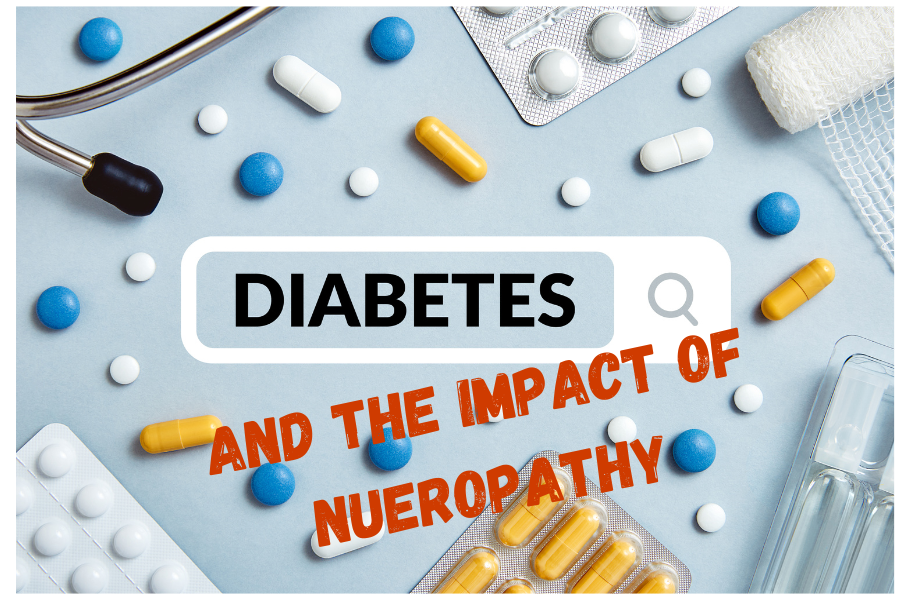Here is how you know...

Getting a wake-up call has more than one meaning. The old-school wake-up call would be staying at a hotel. The front desk would call you at a specific time to wake you up. I don't want to discuss that type of wake-up call, but I would like to address the other definition: "Take action to change a situation." There is no surprise that obesity is an issue in our country, with over 40% of our population falling into this category, and these are pre-C0vid statistics that the problem could be worse now.
Obesity is the number one risk factor for insulin resistance. Suppose you have been diagnosed with pre-diabetes or type II diabetes. In that case, the wake-up call is that these conditions are reversible with diet, exercise, stress reduction, and dietary supplements. All three conditions have one thing in common, elevated blood glucose.
How does our body handle glucose after we eat? We have a fantastic peptide hormone produced by the pancreas called insulin. The role of insulin is to take glucose from the blood and get it into cells. Once in the cell, glucose produces energy: glucose spikes or increases in your blood after a meal or food intake. Insulin follows glucose and increases to compensate for the rise in glucose. Eventually, blood glucose and insulin return to normal in healthy patients after a couple of hours.
Excessive amounts of blood glucose over long periods create the problem where your insulin becomes less effective in responding to elevated glucose. Your body must produce more insulin to compensate for the increased glucose, eventually leading to the overproduction of insulin. Ultimately the insulin receptors on the cells shut down or down-regulate, not allowing glucose into the cells no matter how much insulin is available to help the process. At this point, your body's insulin becomes ineffective in dealing with elevated glucose, creating insulin resistance.
If glucose continues to be excessive and your body is not responding to the insulin produced, your pancreas starts to give up and eventually burns out and stops producing insulin. It is at this point that Type 2 diabetes occurs.
Signs of trouble can be the first signals that your health is not going down the right pathway. Carrying excess amounts of weight is the most concerning marker. High blood pressure and high cholesterol levels are gateways to pre-diabetes. These are all warning signs that your body may be headed toward insulin resistance, and you should take them seriously and address them before things spiral out of control.
The best way to determine if you are prediabetic or on your way toward insulin resistance is to check your fasting insulin. The most common markers tested to check for diabetes are fasting blood glucose and hemoglobin A1c. It is never too late to fight to control your health, but having access to fasting insulin to show that you are going down the wrong path 1 or 2 years before your blood glucose becomes elevated is a good idea.
The range for fasting insulin is 2-20mlU/ml, but the optimal level you should try to achieve is less than 4mlU/ml. When it starts creeping higher in the range, your body struggles to keep up with the elevated glucose levels. Unfortunately, it would help if you asked your provider to have this tested, as most don't routinely check this lab marker.
Some people don't have access to test fasting insulin. An alternative, free option is to do the pinch test. If you pinch the fat on your stomach and you can pinch more than 2 inches, you more than likely have an elevated fasting insulin level. This way of testing is like looking at risk factors, i.e., weight gain, as a precursor to insulin resistance.
The standard way of diagnosing prediabetes is to look at fasting blood glucose. An average level is less than 99mg/dl. A level between 100 and 125mg/dl is considered prediabetic. The hemoglobinA1c or HgA1c is the average blood glucose over 2 to 3 months. Normal HgA1c is less than 5.7%, 5.7 to 6.4% is considered prediabetes, and 6.5% and greater is diabetes.
How do you halt the progression of diabetes? The core areas include diet, exercise, supplementation, and medication. The first two on the list are things you can do immediately, but unfortunately, many find these challenging. Supplements can benefit this fight and augment a healthy diet and exercise. Medications help get you to the target BG level but don't address the underlying issues or fix the problem.
Let's begin with your body. Are you overweight? Do you have inflammation? I ask these questions because they are necessary to determine where you are with your physical structure. Simply losing 10 lbs can reduce your risk of diabetes by 60%. Think about that for a minute, and if you are faced with the onset of diabetes, losing 10 pounds seems a little more doable.
What kind of diet do you have? That topic could cover several articles, but keep it simple; you must eat fresh fruits and vegetables and lean proteins, nuts, and seeds. Utilize quality oils like olive oil in your cooking. Following a Mediterranean diet that utilizes the above ingredients is what I recommend. It is not a fad diet or weight loss program but simply sustainable healthy eating.
Do you exercise? Aerobic exercise burns blood glucose when you are doing it and should incorporate it as part of your daily routine. Exercise will lower blood glucose levels that are elevated. Resistance training is best if you choose the exercise as it helps build and maintain muscle mass. Why is this important? Muscle burns glucose all day; the more muscle mass you have, the more glucose your body will burn at rest. Increased muscle mass increases the amount of glucose burned.
When considering dietary supplements, I like to start with Vitamin D. This prohormone has excellent value in glucose control. Studies show that Vitamin D can act in the brain to decrease body weight, fat mass, and food intake, factors in blood glucose control. Still, it also improves glucose tolerance and insulin sensitivity, specifically at the level of the liver.
The second nutrient I recommend is omega-3 fatty acids. The research doesn't specifically indicate that omega-3 fatty acids will help treat elevated blood glucose levels. However, if we look at its effect on inflammation and know that diabetes is associated with increased weight and elevated CRP, both are indicators of inflammation. A 2000mg/day dose of EPA + DHA utilizing three of the OmegaPure EPA + DHA 720 will get the job done.
Magnesium supplementation can help to restore serum levels, improving insulin sensitivity and metabolic control in type 2 diabetic patients with decreased serum magnesium levels. The salt form I like best is Magnesium Glycinate, which is well-tolerated and highly absorbed.
Here are some other nutrients and extracts that can be helpful with blood glucose. Biotin and the essential trace mineral chromium have clinical research to help in supporting blood glucose already in the normal range. Consider plant-based extracts for maintaining healthy blood glucose levels, fenugreek, berberine, bitter melon, green tea leaf, and gymnema sylvestre. All undergone clinical studies show positive effects in helping to maintain blood glucose levels in the normal range. Gluco IR is a product containing all of the ingredients.
If you need help addressing elevated blood glucose levels, stop by or call the pharmacy (701-483-4858). We can talk about alternative options that will address the issue from a different angle. Please visit my website at www.irsfeldpharmacy.com to find this and other archived articles in the blog section.
Until next time, be vigilant about your health!
VISIT US
HOURS
HOURS
CONTACT US
Fax #: (701) 483-4926












Share On: